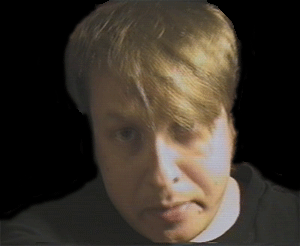Showing posts with label criticism. Show all posts
Showing posts with label criticism. Show all posts
Sunday, July 20, 2008
Electronic Dance Music: Where Next?
Trips Festival, San Francisco, 1966 - an early "rave" with Donald Buchla sounds
Some food for thought by Philip Sherburne for electronic dance music artists, DJs, clubbers and fans:
http://www.pitchforkmedia.com/article/feature/142152-the-month-in-techno
Well, I have no answers or solutions. Personally, at the moment the past and origins seem to be more inspiring than the current state of club culture, as just finishing Analog Days (2002) on the early days of analogue synths (Moog, Buchla, ARP, EMS) proved.
Saturday, April 21, 2007
"Music Has Lost Its Futuristic Edge"
The Art of Noise: 'Beatbox' (1984)
A very interesting article from The Guardian (Friday 20 April 2007) (and Momus commenting it).
From the article:
... Music writer Jon Savage decides what of today's music to listen to by dividing it into two camps: the ersatz and the truly current. "My yardstick about modern records," he says, "is does it sound as though it could only have been recorded in 2007? If it does, great; if it doesn't, boring."
But Savage also feels that, especially when it comes to rock, "music has lost its futuristic edge". And his fellow music writer Paul Morley agrees. "Instead of music moving forward," Morley says, "there was a moment - which you could pin down to around Britpop, or even earlier - when it started to fold backwards on itself. Instead of music having an idealistic need to create a future, to change things and have enough optimism to believe that could happen, it has ground to a halt."
[...] the ideology that fired Morley in the 80s, when he was making music with the Art of Noise. "In a way we anticipated what was about to happen," he says. "We described it as raiding the 20th century: this century of incredible innovation technologically, emotionally, intellectually and aesthetically, which you could raid for influences, putting together a bit from here and a bit from there to create something astounding." Where Morley and Art of Noise differed from 21st-century bands, however, was in their lack of respect for the past. "Coming from a post-punk world, I was very committed to originality, to moving forward," he says. New production techniques had given rise to a new vision for music, and he was determined to be at the forefront. "Rock cliches were going to be buried in the past - even guitars. We were moving into the future: you could kind of believe that was true."
[...] "I cannot help but marvel at how peculiar that is," says Morley. "Something that was meant to be a radical music has become truly conservative, in that it conserves: it's recreating shapes and riffs and sounds that have happened before."
He's not the only one troubled by this. "I cannot stand the fact that so much rock music is ridiculously retro," says Savage.
[...] Another crucial change in the consumption of music has, says Morley, made it harder than ever for the truly original to be heard. "The coverage of music has been democratically spread into the broadsheets, radio and television; pop music seems to be everywhere. But in a funny way that means there's more interference to finding new music. So much that is familiar is being declared the 'new' thing by the record industry, the advertising industry and the mainstream media, anything that is truly unfamiliar and moving forward is more neglected than ever before."
[...] "There is a world," [Morley] suggests, "where, when people say, 'Where are the new Beatles?' the answer is the internet. We've got the new thing - we just haven't been looking in the right place for it."
Labels:
criticism,
Jon Savage,
Momus,
music journalism,
Paul Morley,
The Art of Noise,
YouTube,
ZTT Records
Saturday, September 03, 2005
The Problems of Criticism
(Seppo Heikinheimo, the feared Finnish classical music critic who eventually committed suicide)
Lately I've faced some problems one has when giving and receiving criticism. There are both constructive criticism and unconstructive criticism. Unconstructive criticism is a confused mix of one's personal and subjective prejudices, biases, ignorance, frustrations and even aggressions; hardly ever giving valid arguments except those based on qualities mentioned above, and inclined to create crass generalisations and of fallacious logic. And, if possible, managing to even contradict oneself as often as possible.
Constructive criticism would require as its premises understanding at least a bit of the backgrounds and history, current scene and context. I'm not a fan of any of those current metal scenes myself, for example, but I restrain to make any comment of them, because being an outsider to that scene I have no means to understand or assess the meaning or even importance to someone, an insider, who has grown into it and derives a lot of personal sense of purpose from it.
I think a constructive critic should be able to weigh both the pros and cons of the work that are under his/her assessment and be able to place it to its appropriate genre(s) when considering the execution of its form (is it meant to polished or non-polished, e.g. progrock vs. lo-fi indie; work of an art school gradute vs. outsider art, professional vs. amateur, etc.)
And how should you assess a work of someone coming from your own peer group? Are there any other choices than to join in the mutual back-patting society? Or alternately, if you don't happen to like this person, kick the shit out of his/her work? Being impartial and objective is very hard.
Subscribe to:
Posts (Atom)
